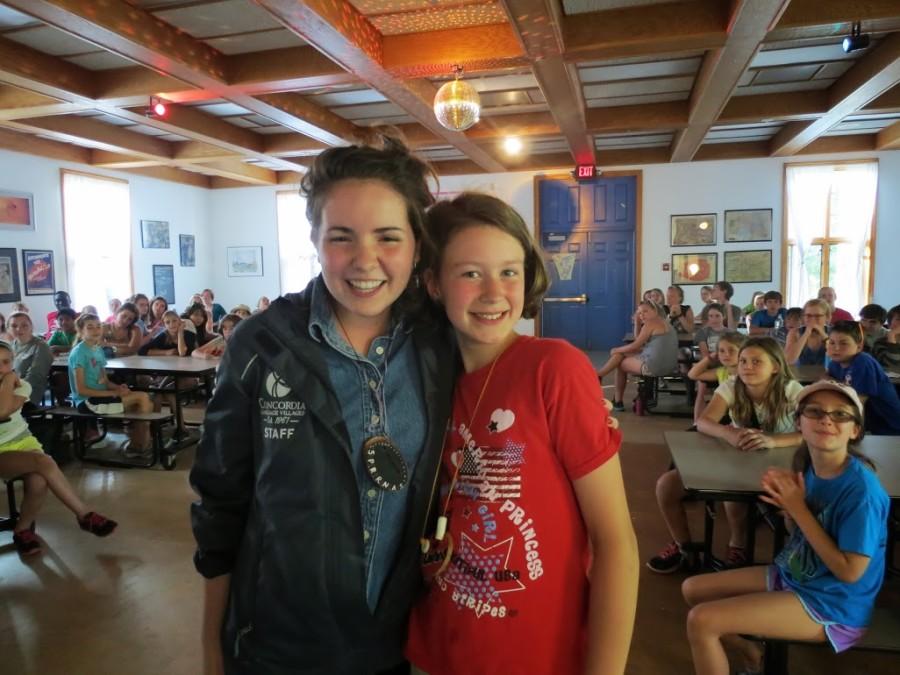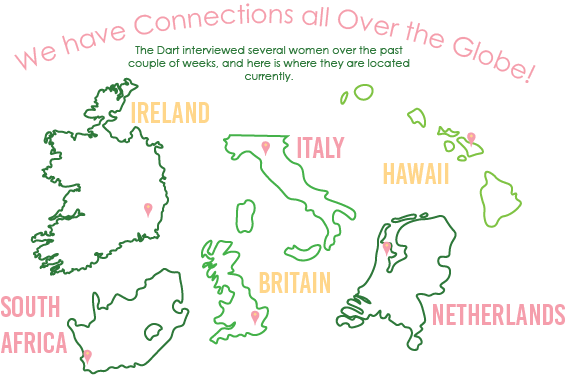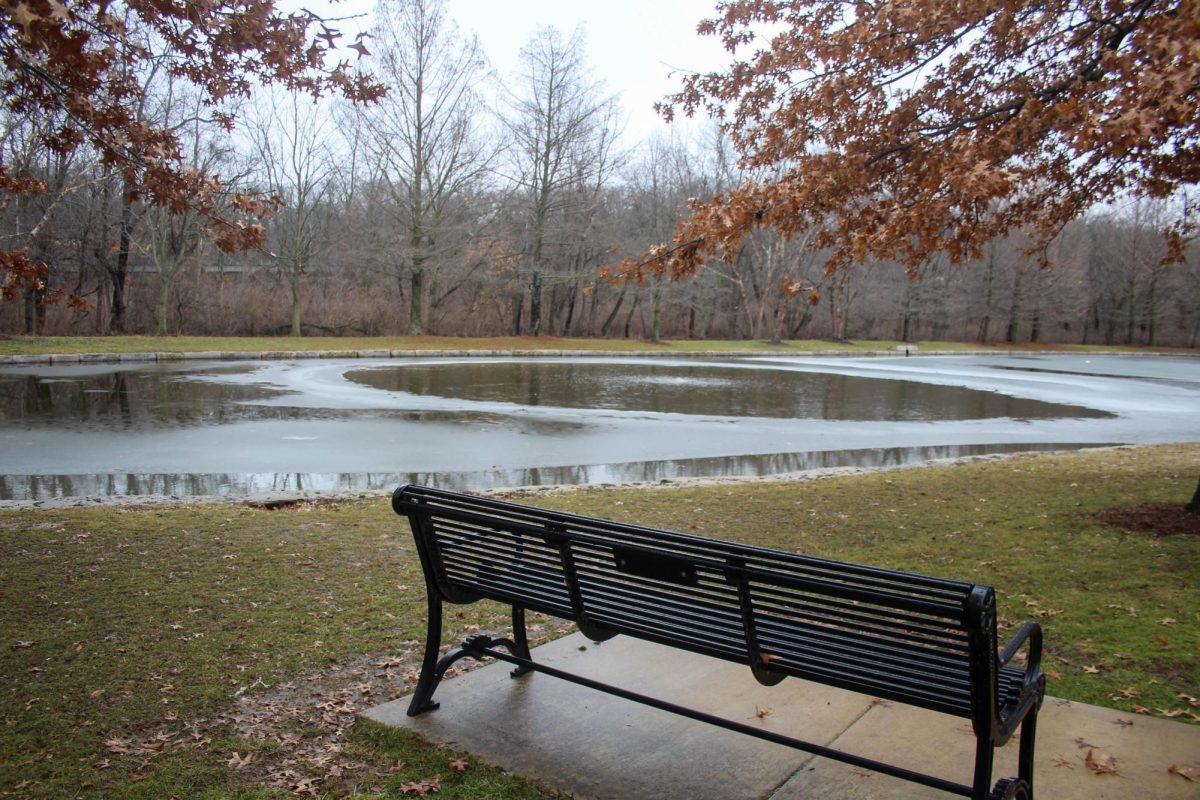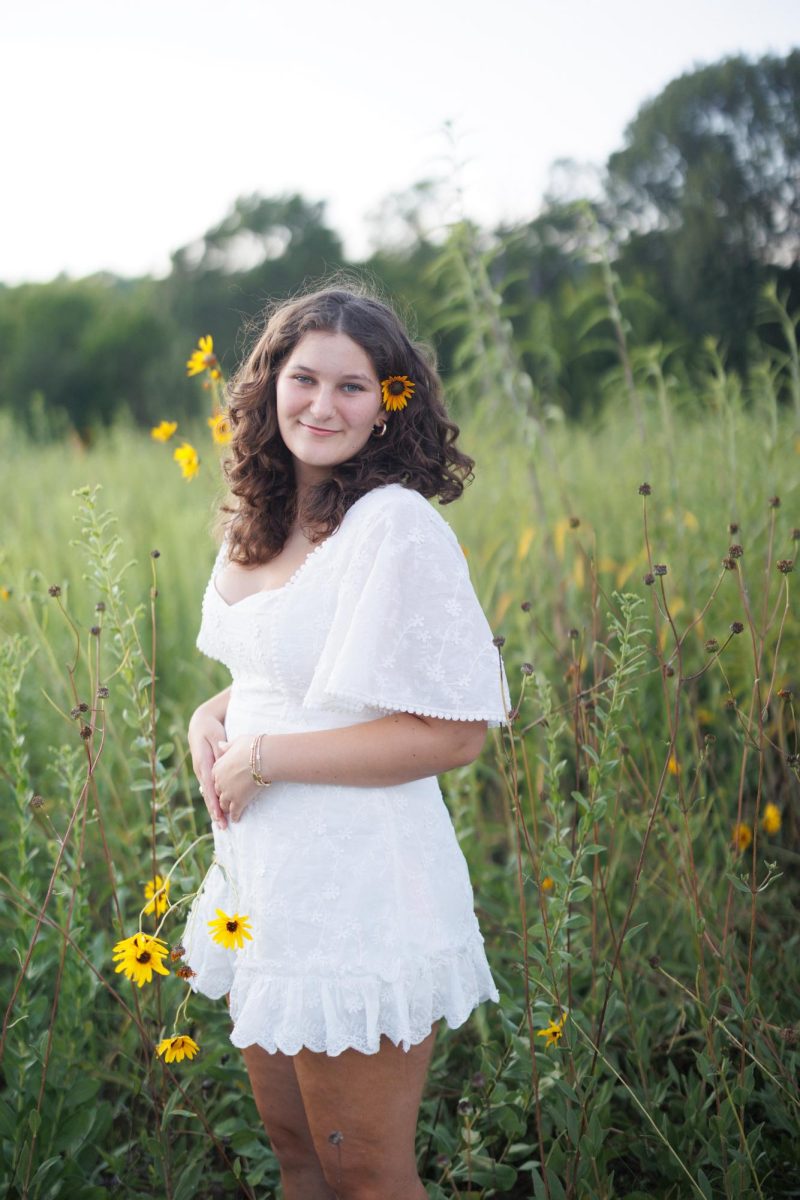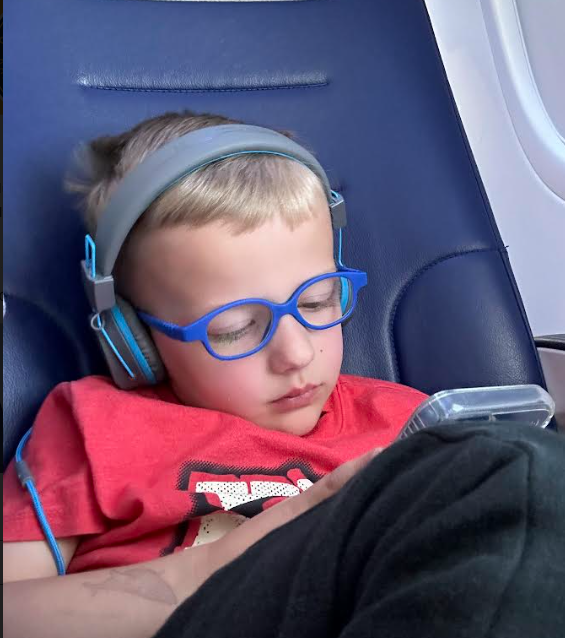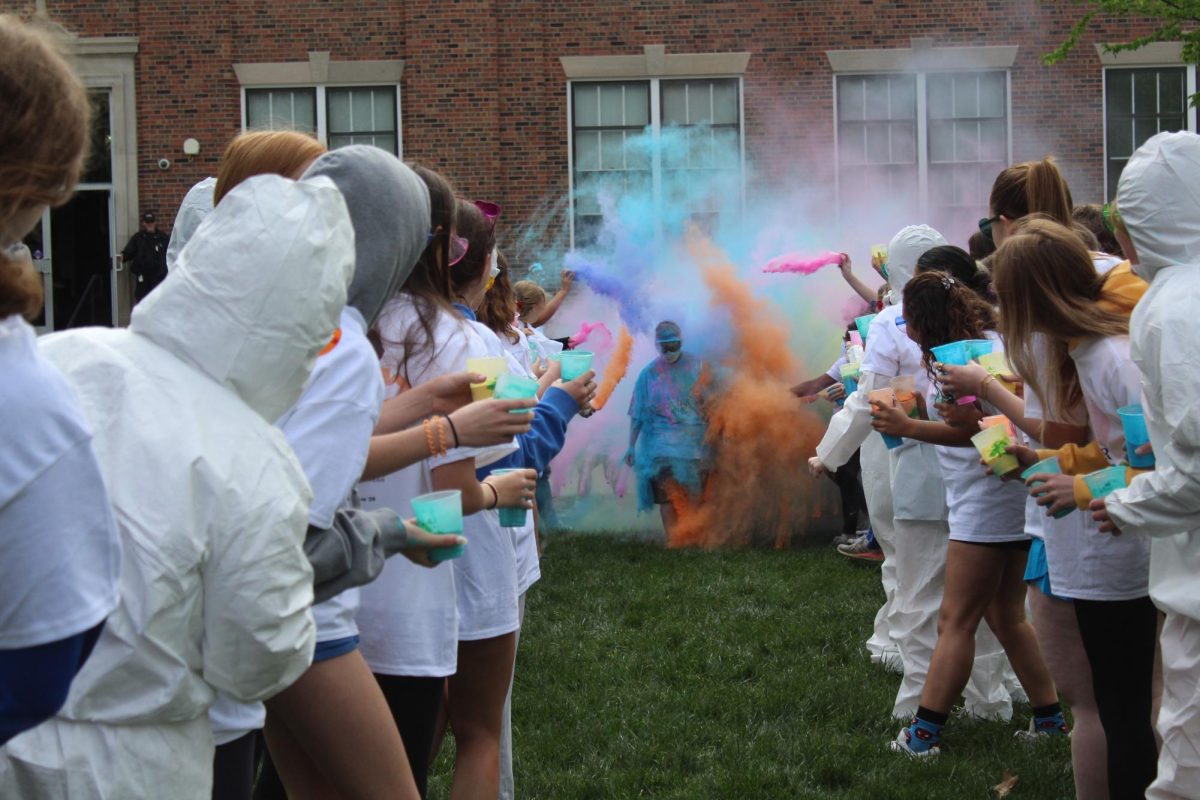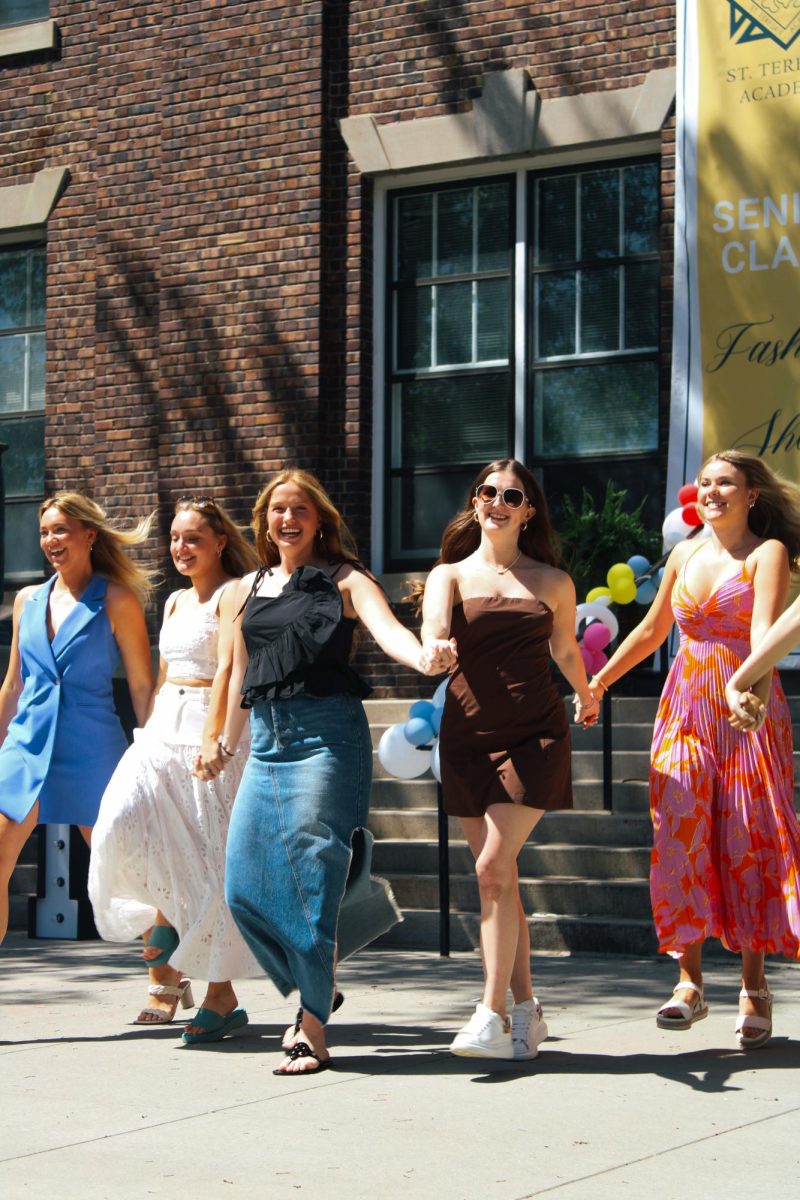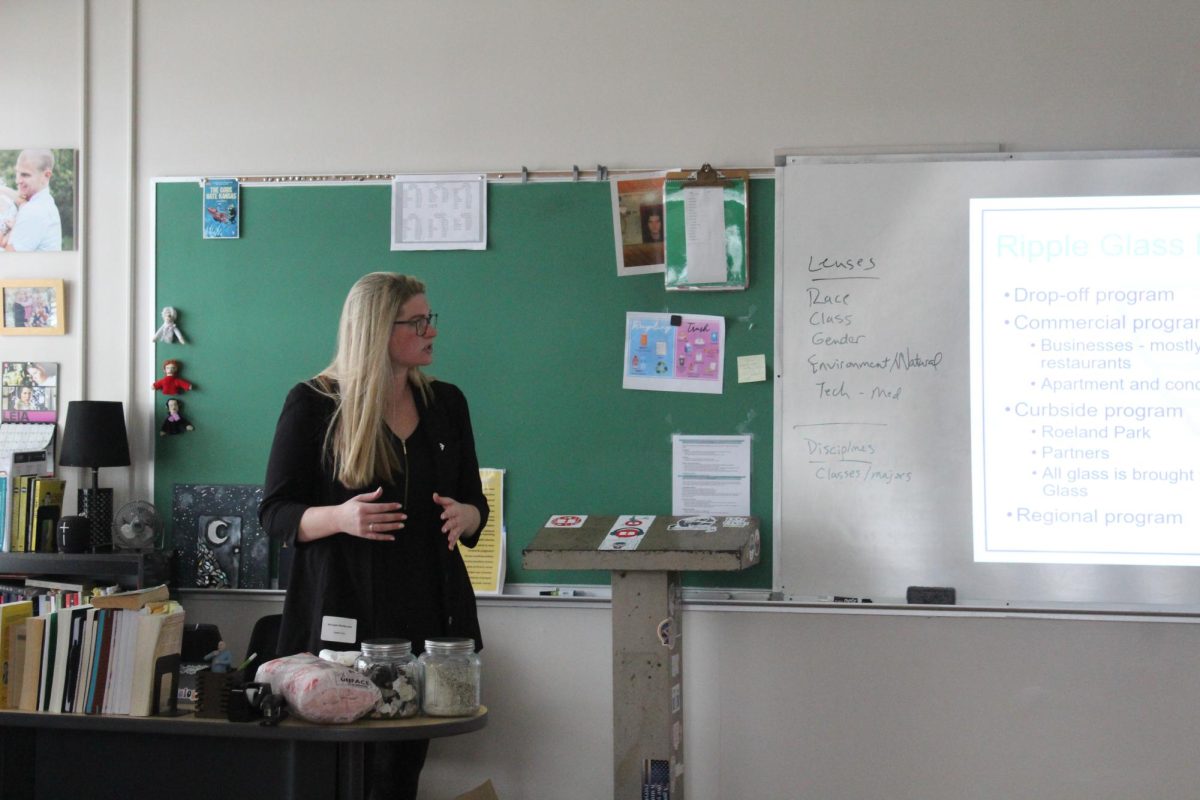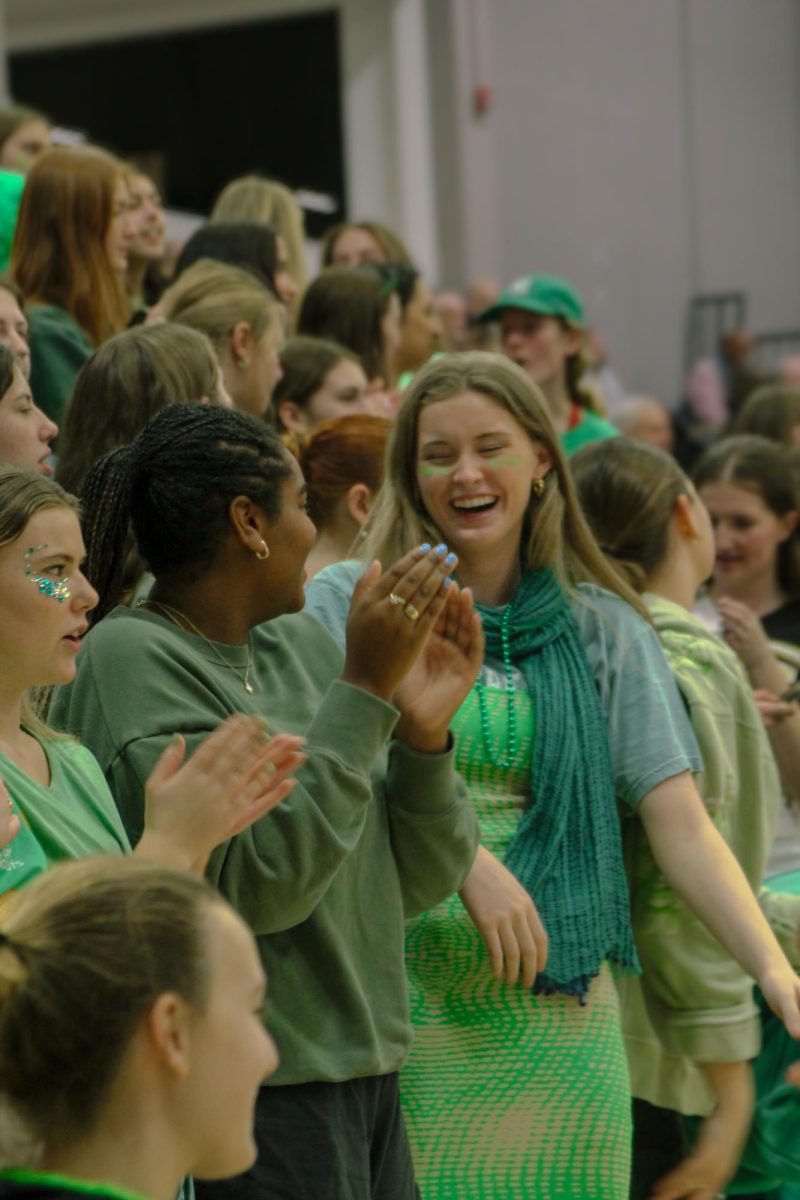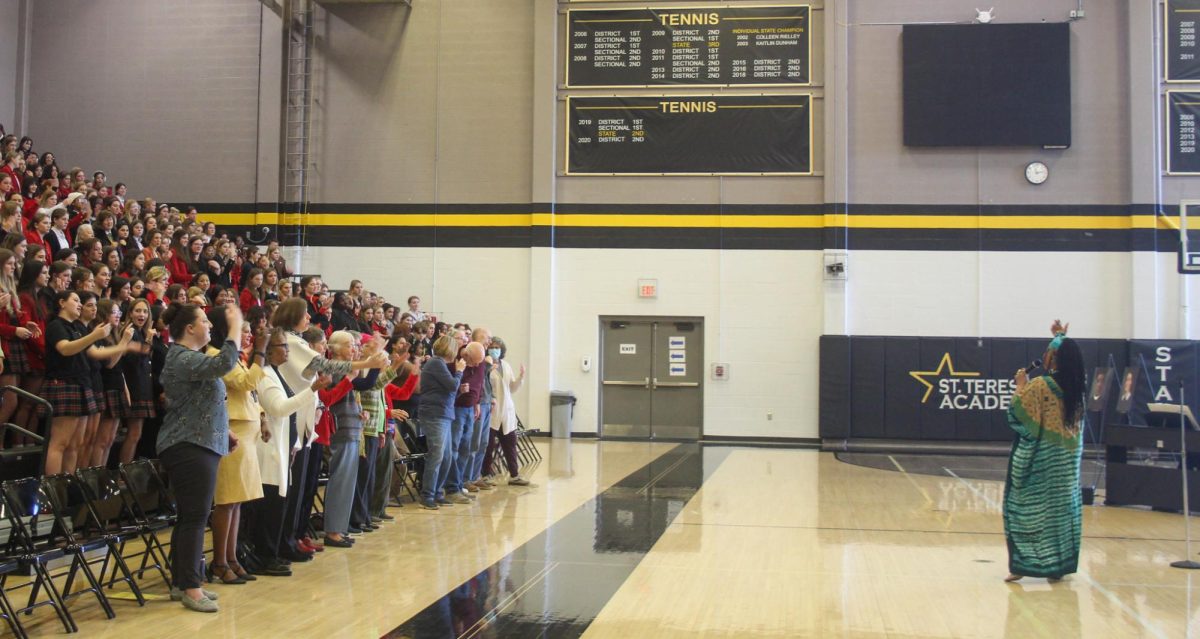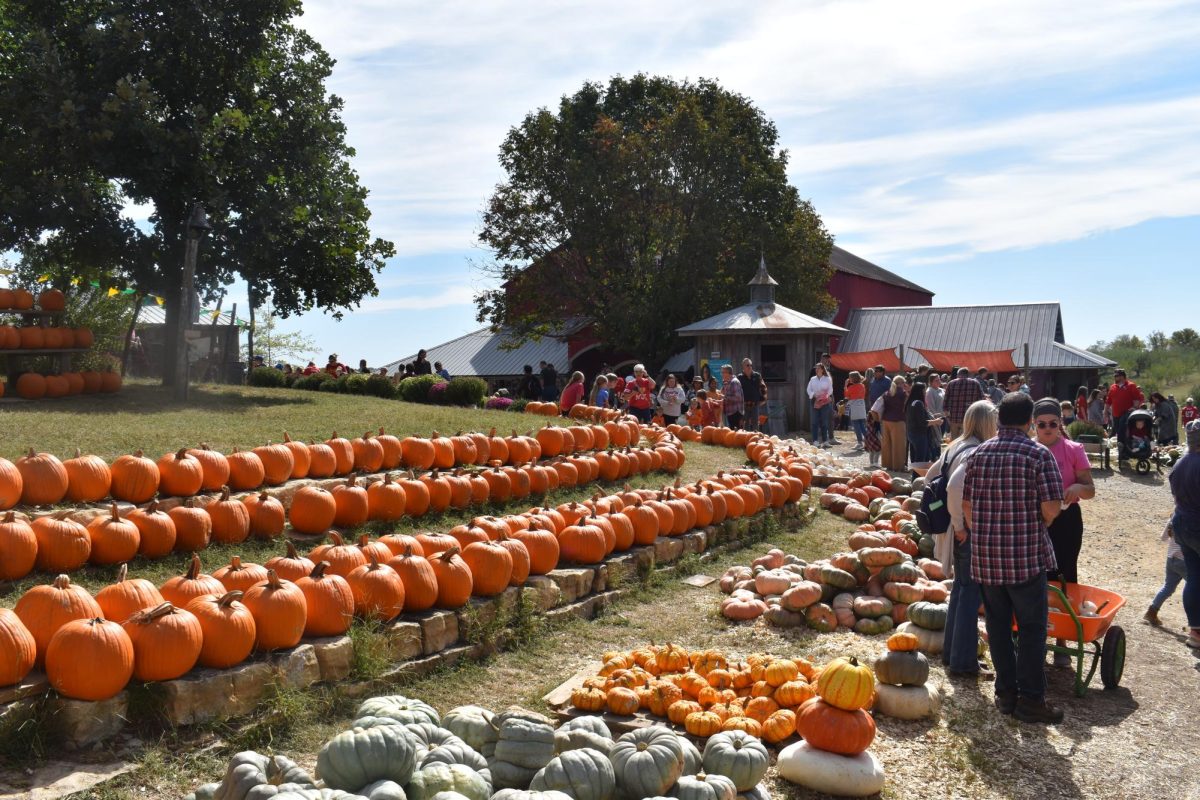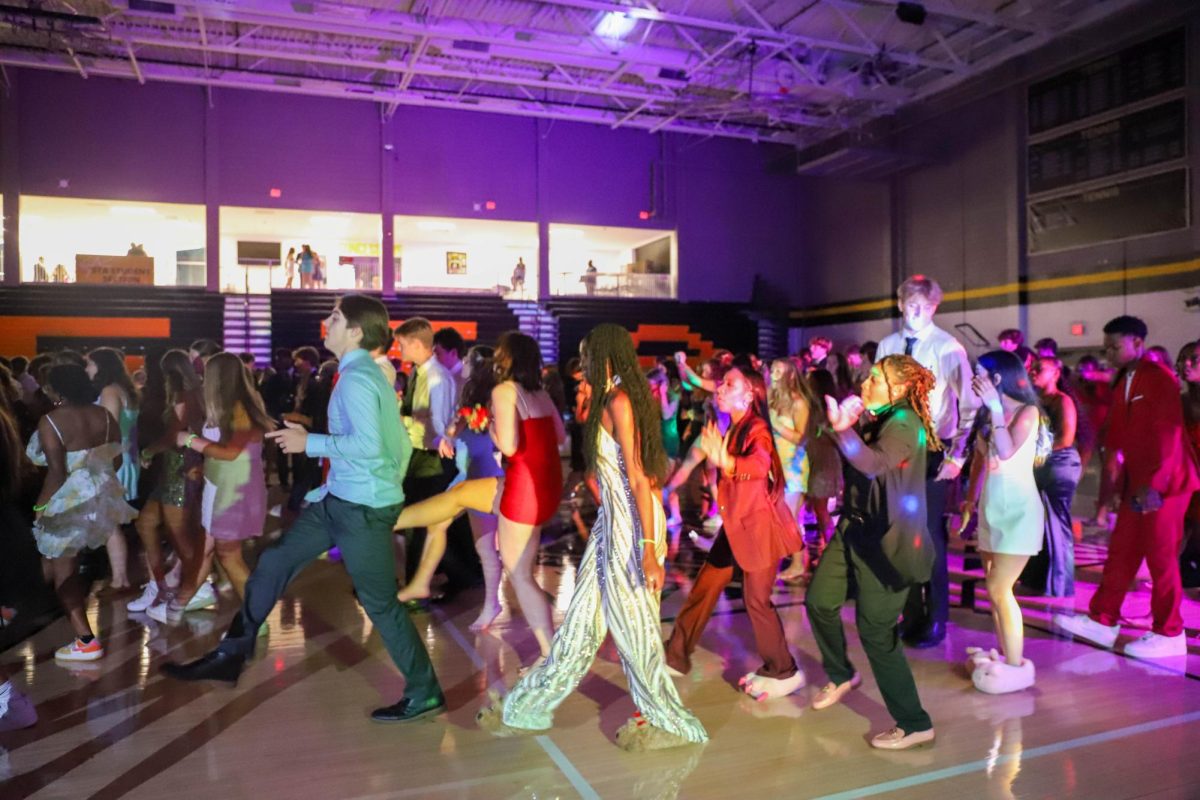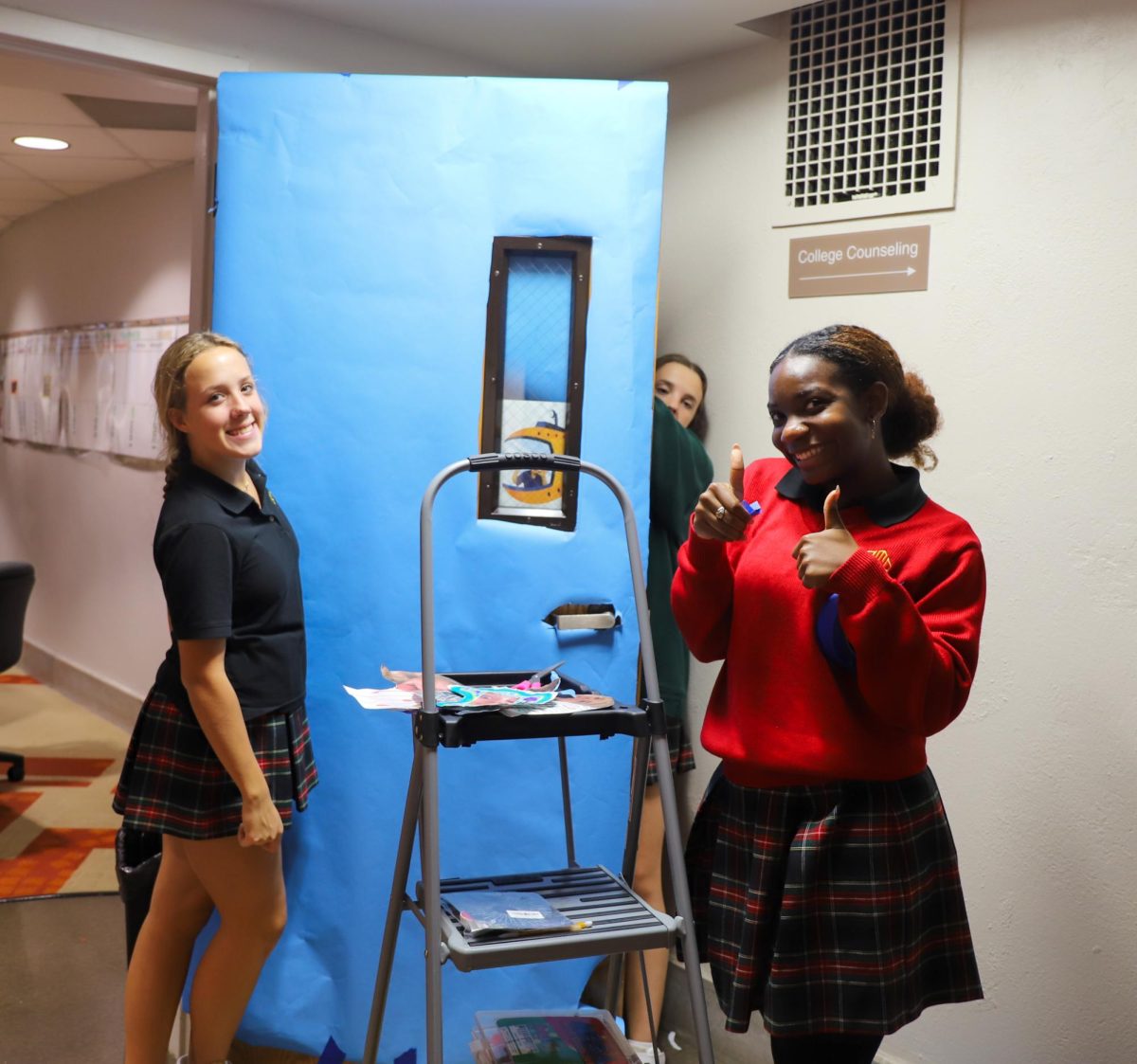by Katie Parkinson
Regardless of where you went over the summer, chances are you spoke English. You spoke English when you hung out with your friends, when you checked out at the store and when you visited with family.
For seven weeks out of her summer, senior Emma Mullen did not speak English. She spoke French.
Mullen was a junior camp counselor at the immersion camp Lac du Bois in Bemidji, Minn. About two hours south of the Canadian border, Lac du Bois is part of Concordia Language Villages, an organization that helps promote “understanding and appreciation of cultural diversity” as well as “communication with confidence and cultural sensitivity in more than one language,” according to their website’s mission statement.
At Lac du Bois, these goals are fulfilled through the immersive language experience and exploration of francophone culture through food, games and other activities.
“[Lac du Bois is] trying to create a village,” Mullen said. “The campers come with fake passports and they ‘cross the border’ into a new country, and so we refer to them as ‘the villagers.’”
After “crossing the border,” villagers picked a French name and gave up their American materials such as books, magazines and cell phones.
“[Campers] don’t have any contact with the outside world besides snail-mail letters,” Mullen said. “I think that total immersion really gets the kids interested in the language, and that’s what they work on all the time.”
The Lac du Bois routine, designed to help campers learn about French language and culture, took over once everyone became comfortable. Every day, villagers experienced these core components:
1. Meals
Meals at Lac du Bois were typically an hour to an hour and a half, according to Mullen. Every day before going into breakfast, villagers posed a question to the camp dean in order to enter the dining hall. These questions ranged from “What’s your favorite color?” to “If you were stranded on an island with a parrot and a cow, what would you do?”
“Whenever [they] would ask a question, the kids would always say, ‘How do you say this?’ ‘How do you say that?’ in French,” Mullen said.
After gaining admittance, breakfast usually included fruit, a popular French cereal made of oats, nuts and corn-flakes called muesli and a freshly-baked basket of bread with butter and jelly.
Lunch and dinner were made from scratch and consisted of appetizers, side dishes and entrees from various francophone countries such as Senegal, the Ivory Coast, Belgium and France.
“Food’s just a really important factor in French culture,” Mullen said.
2. Super Français
In order to motivate villagers to speak French as often as possible, a daily challenge called Super Français was offered, according to Mullen. Participants’ goal was to speak the target language the whole day. If a counselor heard a participant speak English, he or she was out, but if the participant went the whole day, he or she earned a “cool” star bead to put on his or her name-tag.
“[Participants] want to do it because they want the bead, but they don’t realize that by doing it, they’re really getting the whole experience, and they’re really learning much more than they would had they spoken English,” Mullen said.
3. Explorations
During explorations, villagers were split up by level of fluency and met twice a day for an hour. According to Mullen, the first hour was spent learning about a geographical location in a francophone country, while the second half was called “stage,” meaning internship.
“The goal of the ‘stage’ was to create some sort of product,” Mullen said. “You should feel like you accomplished something.”
For example, Mullen helped lead a science explorations stage where the villagers made hypotheses and participated in experiments – all in French.
[nggallery id=573]
4. Family Time
A time for counselors to get to know all the villagers, family time could be difficult because of the language barrier, according to Mullen. Typically there were one to three counselors and six to eight villagers who had varying levels of fluency per “family.”
“I spent 15 minutes trying to explain to one girl [the game] two truths and a lie, because we were trying to play it to get to know each other,” Mullen said. “We went back and forth trying to help her understand what was going on…and once she did, it was like, round of applause all over.”
According to French teacher Alice Amick, this kind of requirement to stay in the target language rather than seek English explanations helps people “get over the butterflies of using a new language and increase fluency within a short time.”
5. Soap Opera
At the end of the day, counselors performed 15-minute “soap operas” for the villagers. Although there was a broad storyline, most of it was improvisational. Each night brought a different episode, and the acting helped further villagers’ understanding of the language and what was going on in the scene.
Activities like the soap operas exposed villagers to a constant stream of French culture and language.
“You definitely saw the kids be more open to learning the language, and they weren’t nearly as nervous about speaking it as they were when they arrived,” Mullen said.
According to sophomore Eileen Kerrigan, who attended the camp before coming to STA, Lac du Bois provided her with a better understanding of French, although it had been difficult to speak French 24/7.
“Some [villagers] come in totally fluent and others come in not having spoken a word,” Mullen said. “Trying to figure out how to work between the two is difficult, but it works. Everyone is there to help each other out.”
While an immersion camp might be a big adjustment, Mullen said she would recommend it because it’s really “where you learn the language.”
“I’m constantly learning new things about the French language,” Mullen said. “It opens doors for me. If I ever want to go to France and do a study abroad program in college, I really think that having this summer experience will help me converse with native speakers.”
According to Amick, while learning a new language is hard work, immersive camps are a good way to help this learning process.
“I have a good feeling about [immersion camps],” Amick said. “I think it gives students a wonderful opportunity to learn a language.”
[swfobj src=”https://www.dartnewsonline.com/wp-content/uploads/2013/09/Interactive-Graphic3.swf”]



